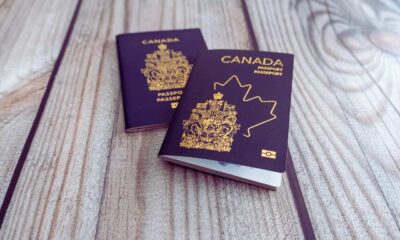Life in Canada
What IRCC Considers When Assessing A Candidate’s Economic Position in Canada?

Immigration, Refugees and Citizenship Canada (IRCC) has revised its processing guidelines for the Provincial Nominee Program (PNP) to clarify how they evaluate a primary applicant’s economic capacity.
Each year, the IRCC publishes an Immigration Levels Plan that includes admissions targets for permanent residents broken down each immigration class and program. The PNP is intended to bring in 105,000 additional permanent residents by 2023.
An applicant must meet the following requirements under the Immigration and Refugee Protection Regulations (IRPR) in order to qualify for provincial nomination.
The applicant must:
- possess the capacity to develop themselves economically in Canada;
- Be listed in a nomination certificate issued by a provincial or territorial authority;
- They want to stay in the province or area where they were nominated;
- If the primary applicant passes the requirements to become economically established;
- their family and dependents may also be eligible for permanent residency.
Financially Established
When the IRCC states that an applicant must be able to economically establish themselves, it indicates that they must be able to sustain themselves. Obtaining a provincial nomination is typically regarded as adequate evidence of this ability. An immigration officer may need to look beyond the provincial nomination and consider other aspects if they have concerns about a candidate’s capacity to establish themselves economically. If the officer finds anything suspicious, it can prompt more inquiries. Later, officers will compare the candidate’s occupation, based on the National Occupational Classification (NOC) code, to determine their ability to retain the job. If the officer has concerns, the candidate will be invited to address them.
Intention to Live in Canada
For applicants who hope to get PR through a PNP, their intention to live in the province is a crucial aspect. Before issuing the permanent resident visa, the immigration officer must be confident that the applicant wants to reside in the dedicated province or territory. Even so, the candidate will be given a chance to respond if the IRCC has a reason to doubt the applicant’s purpose to reside. This complies with the fundamentals of procedural fairness.
PNP Growth and Its Success
Provincial and federal governments in Canada share responsibility for immigration. In 1998, PNPs aid in distributing the economic advantages of immigration across the nation. Provincial governments can search for people they think are most qualified to contribute to the provincial economy and address local labour shortages. Only 400 new permanent residents were accepted into Canada’s PNP in its first year. Since then, the program has been a success, and by the end of 2025, 117,500 immigrants will be invited into Canada annually.
PNP Nominations – Base and Enhanced Nominations
Candidates can directly apply through a PNP stream that is not compatible with Express Entry for a basic nomination. When a province government nominates an Express Entry applicant to apply through a PNP stream that is linked with Express Entry, this is known as an enhanced nomination. Because provincial governments can access a candidate’s profile in the federal Express Entry pool, they might be welcomed even though they did not apply for the PNP.


























